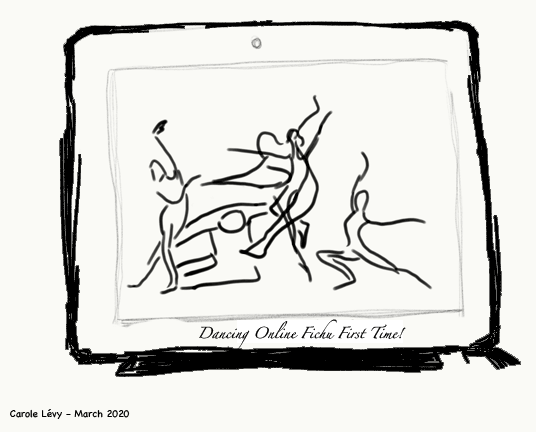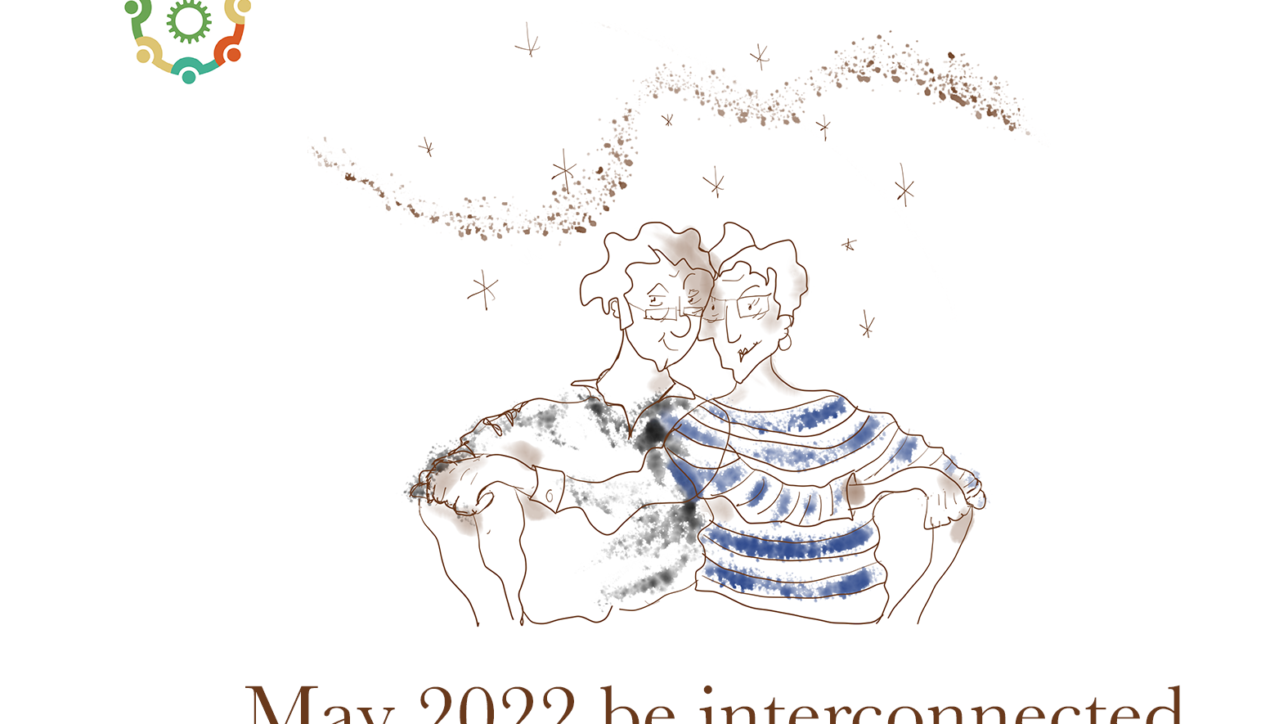Two weeks ago, I tried to join an online dancing session at 10am that was organized by the Open Floor (link), a community I usually join in person for two hours of dancing on Sunday morning in a gymnasium. The dance format is a practice of meditation in movement. It was originally created by Gabrielle Roth (link), the founder of the Five Rhythms (link)– an avant-garde teacher that I had the chance to meet and work with just once. When she passed away, the organization split and two of the founding members – great teachers – created the Open Floor (link), a cousin organization of the Five Rhythms.
Anyway, the Open Floor had announced that an online session would be open to 100 persons. I was excited to join.
At 9:55am, I developed cold feet. I feared looking awkward on the screen while I moved around in my small office. What if nobody shows up? Or what if there are only a few people-dancing in their living room? That would be ridiculous.
In a few minutes, as I was conscious of my inhibiting reaction, I decided to be brave, and at 10:05am I clicked on “Join the video.”
The session was closed. Full! I was atrociously disappointed.
Since I had created open time (one full hour), I had to find an activity that would be as satisfying and atypical as dancing to fill the empty space.
I opted to listen to the new podcast (link) of Brené Brown that had just arrived in my inbox.
The podcast was about the excruciatingly uncomfortable experience of doing something for the first time. An experience Brené Brown calls FFT: F*cking First Time. Excuse my French.
I don’t have the slang edge of Brené Brown nor her capital of credibility. So, for the sake of protecting my reputation, I’ll use a nice French translation that is the equivalent of darned: Fichu. I’ll call it the Fichu First Time. (I also like the British BFT: Bloody First Time).
In Brené Brown’s style (clear, punchy, funny, alive, and vulnerable), she offers a three-step strategy to cope with the experience of FFT. If you don’t have the time to listen to the podcast (link), here is a three bullet-points summary:
- Name the unpleasant experience of FFT when you’re in it. Understanding and naming the malaise we are going through gives relief and agency. We are a meaning-making species.
- Put the experience in perspective. Feeling bad and uncomfortable when something is new, is normal. However, the discomfort will pass.
- Reality-check expectations. Recalibrate the expectation and norms of the experience (It will be hard, messy, or unfamiliar. I’ll need patience) as well as the framework we want to operate in (what we want – what is possible- what we have to gain) – in order to stick to reality.
There are many major and less funny FFTs that a lot of us are experiencing right now with the current pandemic. These three steps can be useful to maintain our sanity and learning edge.
The possibility of attending my online dancing class is a funny and minor fichu first time and an easy practice-ground.
So, I signed up again, in advance this time, to dance in front of my screen in my small office and feel the ridiculousness in my entire body! Stay tuned to hearing how it went!
Question: What have been your FFTs in the last few months? What has surprised you about any of them?









I love the illustration Carole! I listened to the Brene Brown podcast as well. Over the years, I’ve had a lot of difficulty with FFTs but one of the things I have told myself recently is that FFTs give me an opportunity to experience something new in my life. Yes it will be uncomfortable, unfamiliar, and in some situations extremely nerve wracking but if you can check all the mind chatter, you usually come out of the other side having learned something. The learning happens after though. I try and focus on being in the moment fully present, otherwise if I focus too much on taking away something, my mind gets on the performance treadmill.
You’re very clear with your process! Awesome!